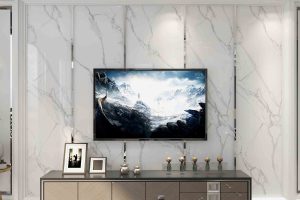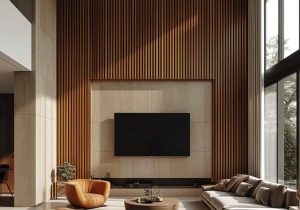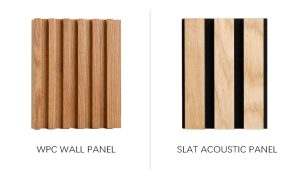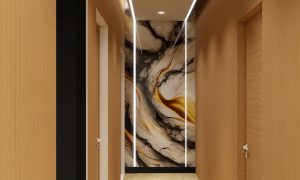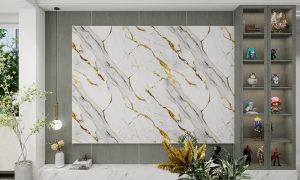In the realm of modern construction and interior design, wall panels have become essential materials, offering aesthetic appeal, functionality, and durability. Among the various types of wall panels, Wood Plastic Composite (WPC) wall panels and acoustic panels stand out for their unique properties and applications. This article provides a detailed comparison of WPC wall panels and acoustic panels, highlighting their advantages, applications, and suitability for different environments.
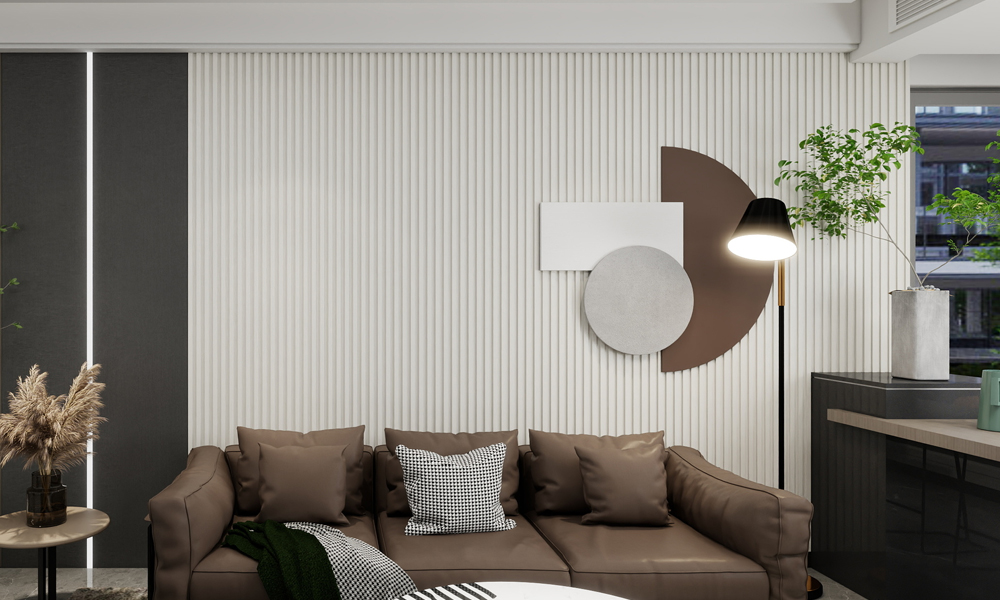
Understanding WPC Wall Panels
What Are WPC Wall Panels?
WPC wall panels are made from a combination of wood fibers and thermoplastic polymers, resulting in a material that is both lightweight and durable. This innovative composite is designed to mimic the appearance of traditional wood while offering enhanced resistance to moisture, pests, and wear.
Key Features of WPC Wall Panels
- Durability: WPC panels are resistant to warping, cracking, and fading, making them suitable for both indoor and outdoor applications.
- Moisture Resistance: Unlike traditional wood, WPC panels do not absorb moisture, making them ideal for humid environments like bathrooms and kitchens.
- Aesthetic Appeal: WPC panels can be finished in various styles and colors, allowing for versatile design options that can complement any interior or exterior décor.
- Easy Installation: The lightweight nature of WPC panels simplifies the installation process, reducing labor costs and time.
Applications of WPC Wall Panels
WPC wall panels are widely used in various applications, including:
- Residential Interiors: Used for accent walls, living rooms, and bedrooms, WPC panels add a touch of elegance and warmth.
- Commercial Spaces: Ideal for offices, restaurants, and retail spaces, these panels can enhance the overall aesthetic while providing durability.
- Outdoor Areas: Suitable for decking, fencing, and wall cladding, WPC panels withstand environmental elements without degrading.
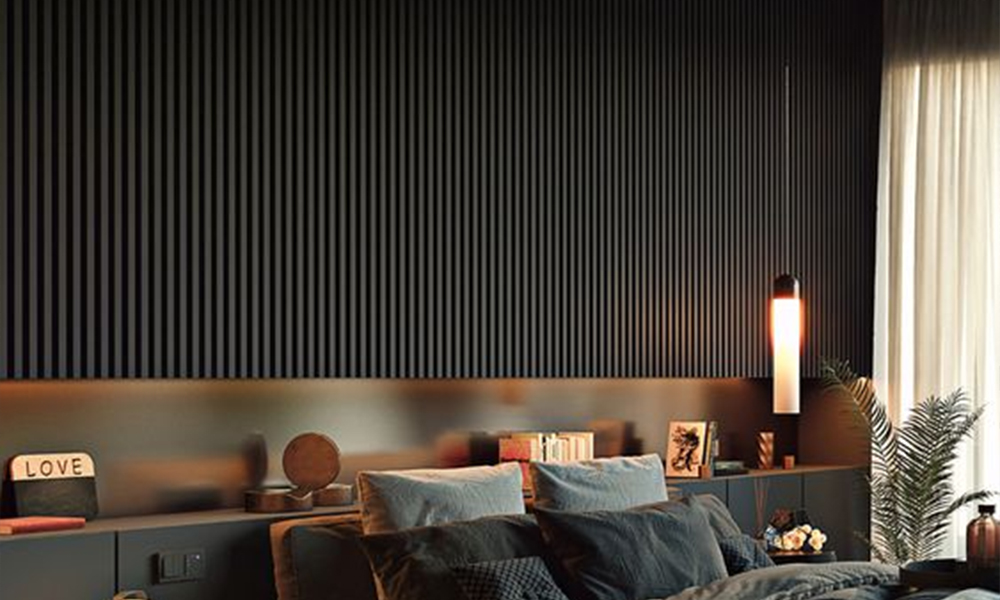
Understanding Acoustic Panels
What Are Acoustic Panels?
Acoustic panels are specifically designed to absorb sound and reduce noise levels within a space. Made from sound-absorbing materials, these panels are critical in environments where noise control is a priority.
Key Features of Acoustic Panels
- Sound Absorption: Acoustic panels effectively reduce echoes and background noise, improving sound clarity and overall acoustic quality in a space.
- Versatility: Available in various shapes, sizes, and materials, acoustic panels can be tailored to meet specific acoustic needs and aesthetic preferences.
- Fire Resistance: Many acoustic panels are manufactured with fire-resistant materials, enhancing safety in commercial settings.
- Eco-Friendliness: Many acoustic panels are made from recycled or sustainable materials, making them an environmentally friendly choice.
Applications of Acoustic Panels
Acoustic panels find applications in numerous settings, including:
- Recording Studios: Essential for sound quality, acoustic panels control sound reflections and enhance recording clarity.
- Office Spaces: In open-plan offices, acoustic panels help reduce noise levels, promoting a more productive working environment.
- Theaters and Auditoriums: Used to enhance sound quality and minimize echoes, acoustic panels are vital for achieving the desired auditory experience.
- Home Theaters: Acoustic panels improve sound quality, ensuring an immersive viewing experience.
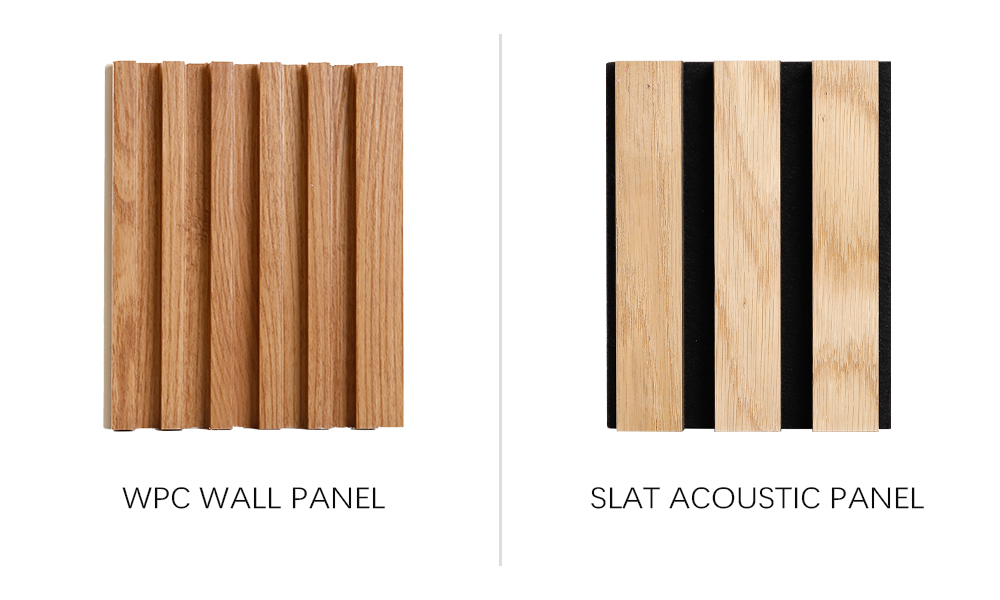
WPC Wall Panels vs. Acoustic Panels: A Comparative Analysis
1. Material Composition
WPC wall panels are primarily made from wood fibers and plastic polymers, combining the aesthetics of wood with the durability of plastic. In contrast, acoustic panels are made from sound-absorbing materials like foam, fabric, or mineral wool, specifically engineered to enhance sound quality.
2. Functionality
While both types of panels serve distinct purposes, their functionalities differ significantly. WPC wall panels focus on aesthetic appeal and structural integrity, making them suitable for a wide range of applications. Acoustic panels, on the other hand, are designed explicitly for sound control, offering essential benefits in environments where noise reduction is critical.
3. Aesthetic Options
WPC wall panels provide a more extensive range of design options, closely resembling traditional wood while being more durable. Acoustic panels, while available in various designs, may not offer the same level of aesthetic versatility, as their primary function is sound absorption.
4. Installation and Maintenance
WPC wall panels are generally easier to install due to their lightweight nature and simple interlocking designs. They require minimal maintenance and can be cleaned with basic household cleaning agents. Acoustic panels may require more careful installation to ensure optimal sound absorption, and their fabric coverings may need periodic cleaning or replacement.
5. Cost Considerations
The cost of WPC wall panels may vary based on the quality and design, but they often provide a cost-effective solution for both residential and commercial projects. Acoustic panels can be more expensive due to their specialized materials and sound-absorbing properties, especially for high-performance options.
Choosing the Right Panel for Your Needs
When selecting between WPC wall panels and acoustic panels, consider the following factors:
- Purpose: Determine whether your primary need is aesthetic enhancement or sound control. WPC panels are ideal for adding beauty and durability, while acoustic panels are essential for noise reduction.
- Environment: Assess the environment where the panels will be installed. For humid areas, WPC panels are more suitable, whereas acoustic panels excel in spaces requiring sound quality management.
- Budget: Consider your budget and the long-term value each option offers. WPC panels may provide better durability and lower maintenance costs, while acoustic panels may require a higher initial investment.
Conclusion
Both WPC wall panels and acoustic panels serve essential roles in modern construction and design. WPC wall panels offer a blend of aesthetic appeal, durability, and ease of installation, making them suitable for various applications. In contrast, acoustic panels are indispensable in environments where sound quality and noise control are paramount.
Ultimately, the choice between WPC wall panels and acoustic panels depends on specific project requirements, budget constraints, and desired outcomes. Understanding the unique features and applications of each panel type will help B2B clients make informed decisions that align with their goals and enhance their projects.
By considering these factors and the distinct advantages each panel offers, you can choose the right solution that meets your needs, ensuring a successful and professional outcome in your construction or design project.

